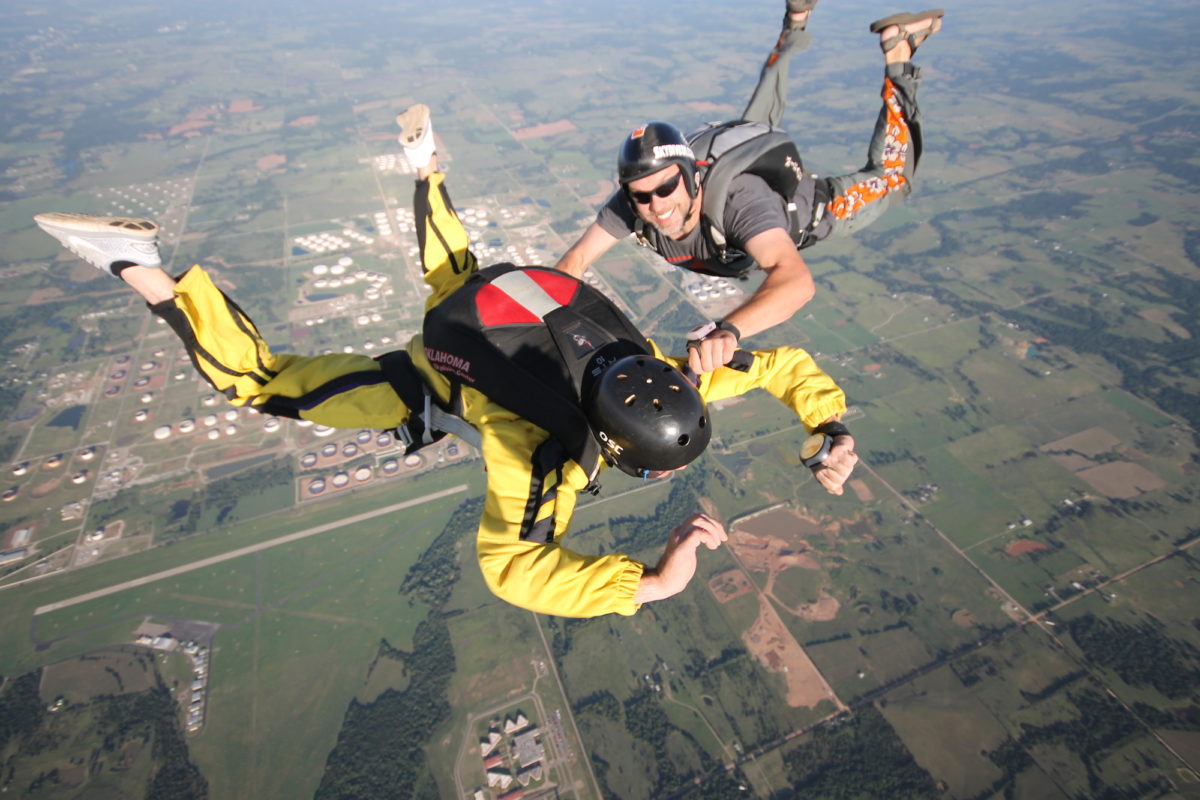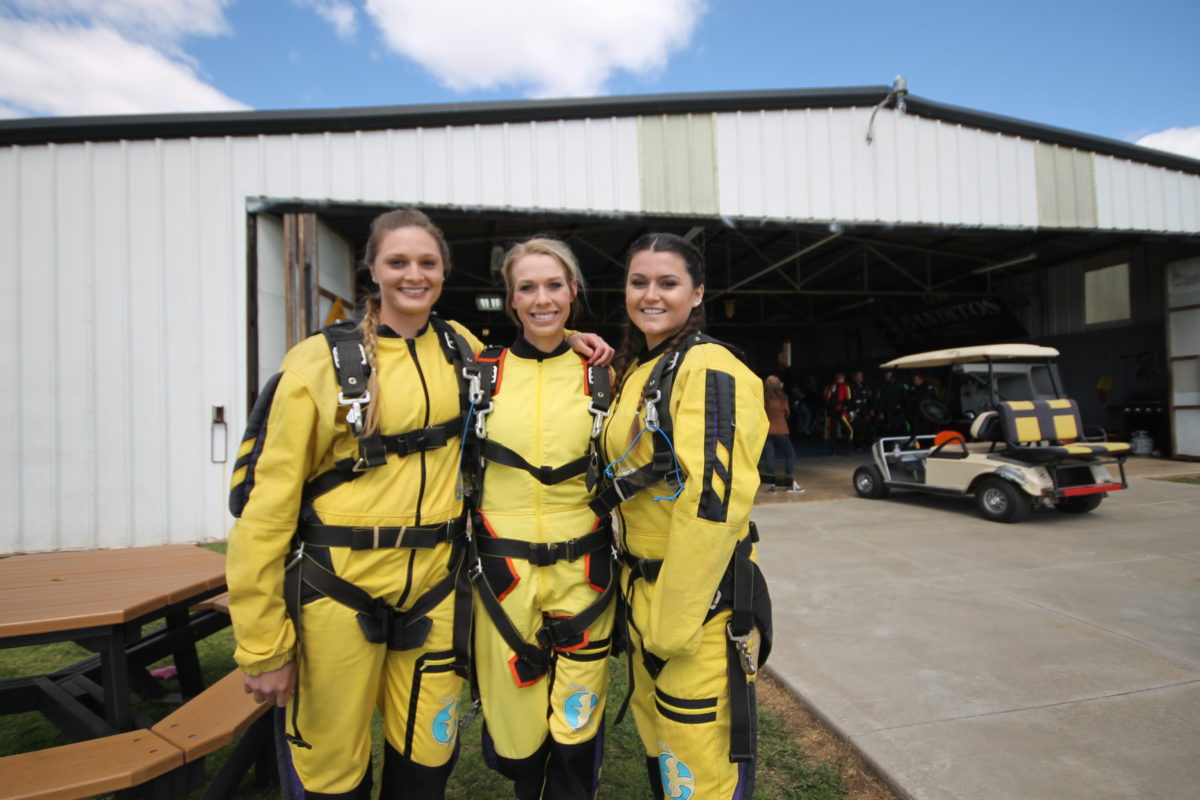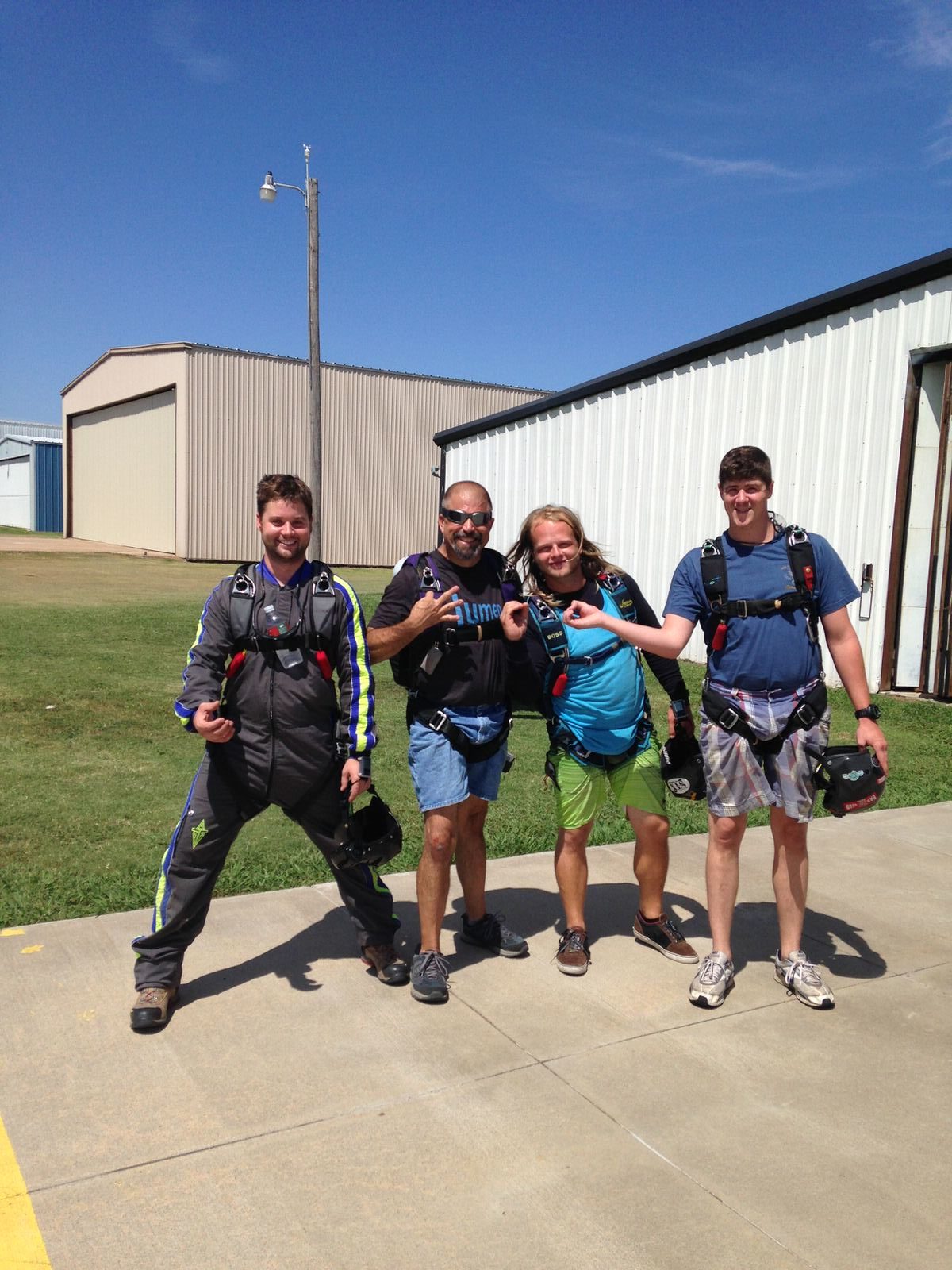Can Skydiving Be Therapeutic?
Tuesday, October 22, 2024
When you think of skydiving, what do you picture? Most picture wild adrenaline junkies leaping out of airplanes, arms flailing, screaming in excitement, with no regard for life’s fragility or the safety of others. And this couldn’t be further from the truth!
Skydiving isn’t just for thrill-seekers and adrenaline addicts – in fact, jumping out of a perfectly good airplane can be a fantastic way to clear your head, ease your anxiety, and connect with your inner zen. Yes, you heard that right – skydiving therapy, baby! Let’s dive into how skydiving can be a game-changer for mental health, the effects of skydiving on the brain, and why it’s becoming such a popular therapeutic activity!

What Are Therapeutic Activities Anyway?
First things first – what exactly do we mean by therapeutic activities? Think of them as activities that make your brain and body say “OoOohhh” and “Aaaahhhh.” Traditionally, therapeutic activities include things like yoga, meditation, painting, or even a good ol’ fashioned talk with your therapist. They help you relax, process emotions, support your mental health, and improve your overall quality of life.
But in today’s world, people are finding all kinds of new ways to boost their mental well-being that don’t exactly follow the traditional “calm and relaxing” theme. More and more, adventure sports – yes, including skydiving – are being recognized as powerful tools for mental and emotional healing. Because really, what’s a better way to cleanse your soul than freefalling from 14,000 feet? Okay, we might be a little bit biased – but truly, skydiving has helped SO many people who were lost, struggling, or just needed a little reality check!
The Effects of Skydiving on the Brain
Skydiving isn’t addictive solely for its adrenaline-packed fun. Surprisingly enough, most people keep coming back to experience the feeling of FREEDOM, to gain perspective, and feel on top of the world! Here are some of the many benefits of skydiving on your body:
- Hello, Adrenaline! Meet Endorphins!
When you’re preparing to jump out of an airplane, your brain shifts into overdrive. Your body releases adrenaline as part of the “fight or flight” response, which gets your heart racing and sharpens your senses. This rush of chemicals prepares you for action, and makes you feel superhuman – but the benefits don’t stop there. After the jump, the body releases endorphins – or “feel good” chemicals – like serotonin and dopamine, which improve mood and reduce stress. Ever heard of a runner’s high? Skydivers get that same euphoric feeling – without the running.
- Mindfulness in Freefall
If you’ve ever tried meditation or mindfulness exercises, you know how hard it can be to quiet your mind. Thoughts are constantly buzzing around, reminding you of all the things you should be worrying about. But when you’re skydiving, your brain doesn’t have time or space to overthink. Because when you’re freefalling at 120 miles per hour, you’re completely in the moment – it’s the epitome of living in the now. All of your senses are heightened – the wind rushing past, the view of the Earth below, and the pure joy of feeling complete freedom for maybe the first time in your life. This intense focus creates an experience similar to mindfulness, a practice well-known to reduce stress and improve mental clarity.
- Overcoming Fear: Skydiving Therapy in Action
Adventure therapy is a fancy term for using outdoor or adventurous activities – like hiking, rock climbing, white-water rafting – to deal with mental health challenges. Skydiving has joined the ranks of activities that are gaining recognition for their therapeutic benefits. We can probably thank Will Smith’s iconic “What Skydiving Taught Me About Fear” storytime for getting that message out to the public! In all honesty, people have been skydiving for this reason since the beginning of skydiving history – maybe we just didn’t see that way in those early days. There’s something about soaring through the sky, unattached to anything that gives you a whole new perspective, literally and figuratively.
- Building Community Through Skydiving
The benefits of skydiving extend beyond the jump itself – you’re also welcomed into a community of supportive, enthusiastic, and interesting individuals who understand the power of a good skydive. Humans are social creatures – whether we like it or not – and our happiness depends heavily on the energy of the people around us. Skydivers are some of the most welcoming, open-minded, and free-spirited people on the planet. So, if you’re feeling lonely and isolated, we’ve got a home for you! Skydivers have this incredible way of bonding over the shared experience of living life on the edge and witnessing the true beauty of the world around us. Whether it’s your first jump or your fiftieth, you’ll find yourself surrounded by people who get it – people who love to celebrate life to the fullest.

Skydive for Mental Health: Safety Considerations
Okay, before we all go throwing ourselves out of planes (though we’d love that), let’s talk about some safety precautions. While skydiving can be an amazing experience, it is not a one-size-fit-all solution for mental health issues. If you’re dealing with severe anxiety, PTSD, depression, or any other condition that could be triggered by an extreme situation, it’s important to check in with a mental health professional before booking your jump. Skydiving is not a replacement for real therapy. Think of it as the cherry on top of your mental health journey – a bold, exciting way to challenge yourself once you’ve got a solid support system in place.

Ready to find out if skydiving therapy works for you? Take the leap – book your skydive with Oklahoma Skydiving Center today! Blue skies.
Copyright © 2025, Oklahoma Skydiving Center, All Rights Reserved.
DropZone Web Design & Marketing by Beyond Marketing, LLC





